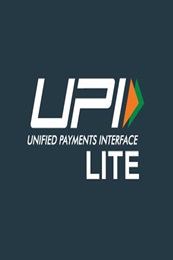Navigating the Rules of RTGS Transfers for High-Value Payments
April 15, 2025

In today's fast-paced world, technology has revolutionised the way we conduct financial transactions. One such advancement is Real-Time Gross Settlement (RTGS), which allows for swift and secure transfer of large funds between banks.
In this blog, we will explore what RTGS is and delve into its various aspects to help you navigate the RTGS rules for high-value payment transfers.
Understanding RTGS
RTGS, or Real Time Gross Settlement, is a system that enables instantaneous transfer of funds. Unlike traditional systems where transactions are netted at the end of the day, RTGS operates on a gross basis, settling each transaction individually in real-time. This means that the full amount of the transaction is transferred from the payer's account to the payee's bank account immediately, ensuring minimal default and non-settlement risks.
Using RTGS for high-value payments offers several advantages:
- Speed: RTGS transfers are processed in real-time, ensuring quick availability of funds to the recipient.
- Security: The irrevocable nature of RTGS transactions minimises the risk of fraud or unauthorised reversal.
- Convenience: Initiate transfers anytime, anywhere using net banking or mobile apps.
- Transparency: Both parties can track and verify the status of an RTGS transfer, providing peace of mind.
- Seamless process: By eliminating physical visits to banks and paperwork, RTGS transfers offer a hassle-free experience.
Navigating RTGS Rules for High-Value Payments
To navigate the rules of RTGS transfers effectively, it's important to familiarise yourself with the following key aspects:
- Minimum Transaction Amount: The Reserve Bank of India (RBI) has set a minimum transaction amount for RTGS transfers. As of now, this limit is set at ₹2 lakh.
- Transaction Timings: RTGS usually operates 24 hours a day, 7 days a week and 365 days a year. It is important to check the specific timings of your bank to ensure that your payment is processed in a timely manner.
- Transaction Charges: Banks may levy a nominal charge for RTGS transfers. The charges may vary depending on the amount transferred. It is advisable to check with your bank regarding the applicable charges.
- Beneficiary Details: When initiating an RTGS transfer, you need to provide accurate and complete beneficiary details, including the recipient's name, account number, and bank branch's IFSC code. It is crucial to double-check these details to avoid any errors or delays in the transfer.
How to Initiate an RTGS Transaction
To successfully initiate an RTGS transaction, follow these steps:
- Log into your net banking account or mobile app.
- Choose the "Transfer Funds" option and select RTGS.
- Add the beneficiary's details, including their account number, name, branch details, and IFSC code.
- Enter the amount you wish to transfer (must be minimum Rs. 2 lakhs or higher).
- Provide a purpose for the transfer.
- Review and confirm the transaction details before proceeding.
Once the necessary information has been furnished, the bank will initiate the transfer in real-time, ensuring immediate credit to the recipient's account.
Examples and Scenarios
Scenario 1: Real Estate Purchase
Imagine you're purchasing a property worth Rs. 50 lakhs. To complete the transaction securely, you decide to use RTGS. By following the steps mentioned earlier, you initiate an RTGS transfer from your net banking account. Within minutes, the entire amount is transferred to the seller's account, ensuring a swift and safe transaction.
Scenario 2: Business Expansion
You own a successful business and want to expand by acquiring a new manufacturing unit. The purchase price is Rs. 1 crore, which you transfer via RTGS from your corporate bank account. With real-time settlement and instant credit in the seller's account, you can proceed with confidence and focus on growing your business.
Final Thoughts
Navigating the RTGS rules for high-value payments is crucial to ensure secure and efficient fund transfers. By understanding how RTGS works and following the necessary steps, individuals can avail themselves of this swift and reliable payment transfer system.
Ujjivan SFB offers a range of banking services, including RTGS transfers, providing customers with convenient options for high-value transactions. To learn more about our services, visit Ujjivan SFB.
FAQs
1. Can I initiate an RTGS transaction through internet banking?
Yes, RTGS transactions can be initiated using internet banking, offering the convenience of transferring funds from the comfort of your home.
2. Can I initiate an RTGS transfer online?
Yes, most banks provide online banking facilities through which you can initiate an RTGS transfer.
3. Can I use RTGS for international fund transfers?
No, RTGS is a domestic fund transfer system within India and cannot be used for international transfers.
4. What should I do if there are any issues with an RTGS transaction?
In case of any issues with an RTGS transaction, it is advisable to contact your bank's customer support for assistance.
5. How long does it take for an RTGS transfer to be credited to the recipient's account?
RTGS transfers are settled in real-time, ensuring immediate credit to the recipient's account upon transaction initiation.
6. Can I cancel an RTGS transaction once initiated?
No, once an RTGS transaction is initiated, it is final and irrevocable. Therefore, it is important to review the transaction details before confirming.
7. How do I ensure that I have enough funds for an RTGS transaction?
Before initiating an RTGS transaction, you must ensure that your account has sufficient funds to cover the transfer amount.
8. Is legal protection provided for RTGS transactions?
Yes, RTGS transactions are recognised by legal bodies, providing additional security to individuals making high-value payments.
9. What is the minimum amount for an RTGS transaction?
The minimum amount for RTGS transactions is Rs. 2 lakhs.
10. Can I initiate an RTGS transaction on weekends?
Yes, RTGS transactions can be initiated on weekends as well, providing individuals with the convenience of transferring funds at any time.
Latest Blogs

Telangana Housing Board & KPHB Colony: A Guide to Affordable Urban Housing in Hyderabad
March 14, 2025
As Telangana continues its rapid urbanisation journey, two key housing entities—Telangana Housing Board (THB) and Kukatpally Housing Board Colony (KPHB)—have played critical roles in shaping the state's real estate ecosystem.

Does Checking CIBIL Score Frequently Lower Your Credit Points?
April 07, 2025
Imagine you're planning to apply for a home loan, a credit card, or even a car loan. Naturally, you want to ensure your CIBIL score is in good shape before proceeding.

Explained: Can NRIs Buy an Agricultural Land in India?
April 03, 2025
Real estate investment is often a top priority for Non-Resident Indians (NRIs) looking to retain strong financial ties to India.

How to Improve Your CIBIL Score from 600 to 750: A Step-by-Step Guide
April 02, 2025
Your CIBIL score is like your financial reputation—banks check it before approving loans or credit cards. If your score is hovering around 600, you might face difficulties in securing credit or may get loans with higher interest rates.

What Happens When You Leave Your Savings Account Unused?
April 01, 2025
Imagine waking up one day to find that your hard-earned money is locked away and inaccessible. Sounds stressful, right? This is precisely what happens when you leave your Savings Account inactive for too long.





